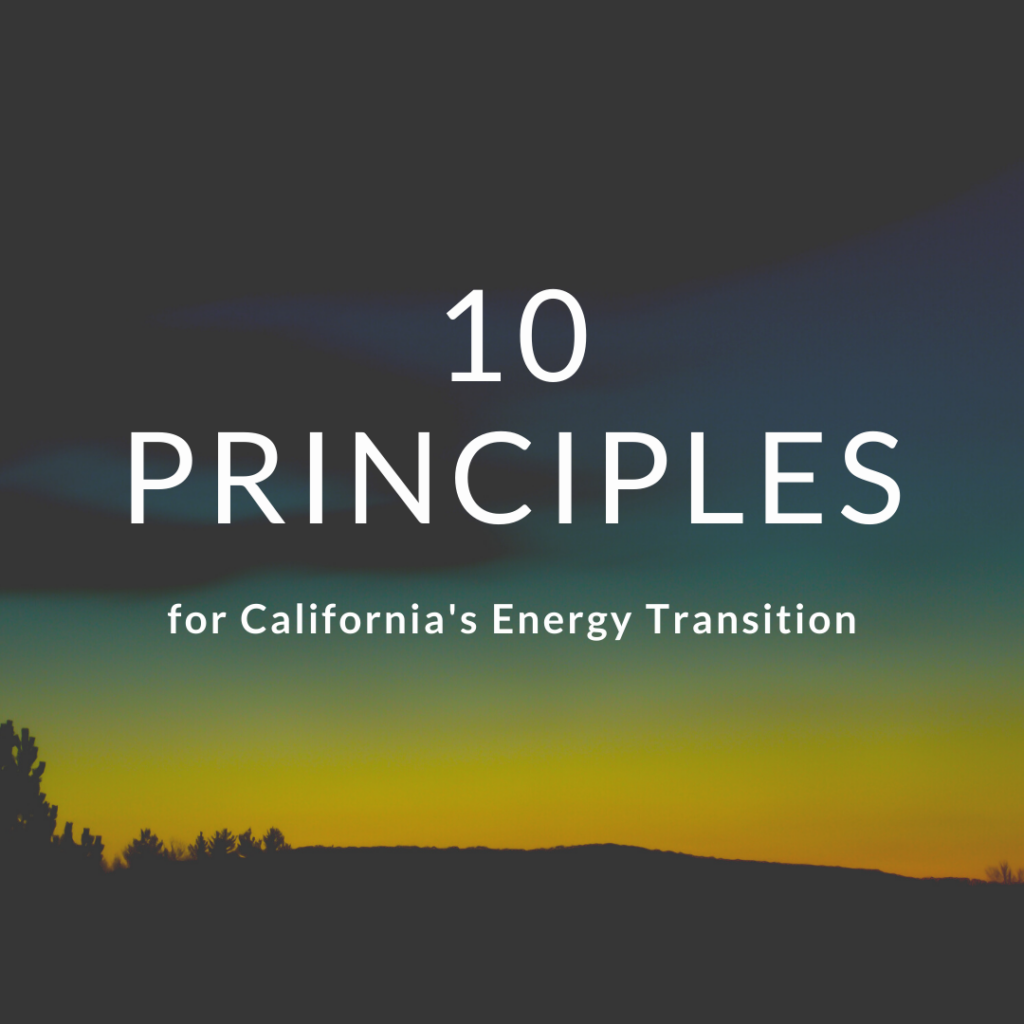As the smoke from the 2019 wildfires started to clear, the Reclaim Our Power Utility Justice campaign wrote a letter to Governor Newsom. We put forward 10 principles to guide California’s transition to a safe, resilient energy future that benefits all Californians, not just the wealthy few.

1. Distributed Power. Instead of massive power plants and long transmission lines that cut through wildfire-prone areas, California must build a web of new, more resilient energy systems that generate, store and distribute clean renewable power locally and regionally.
2. Worker and Community Control. The only way to create an energy system that works for us, is if it is determined by us. Workers and communities must own and make meaningful decisions about our energy systems, not corporations like PG&E that put profits over safety.
3. Clean Renewable Energy for All. All people deserve to breathe clean air and have healthy environments to live, learn, play, and work. Any restructuring plan must include a managed decline of dangerous gas power plants, and protect low-income Californians from gas rate increases in the process. Instead of burning dirty fossil fuels that poison our air and bodies, we must power our neighborhoods with clean renewable energy.
4. Corporate Accountability. Californians shouldn’t have to pay for PG&E’s disasters, whether it’s through rate increases on customer electric bills or taxpayer-funded cost recovery. Investor-owned utilities need to be accountable for the consequences of their reckless decisions and pay for the damages they caused.
5. Frontline Leadership. Ensure that all utilities, load-serving entities, and utility regulatory bodies include environmental justice leadership in their governance and decision-making bodies. California needs more community control at every level of our energy system with clear protections for people who are most impacted.
6. Indigenous Sovereignty and Land Stewardship. We must respect indigenous sovereignty and follow the lead of local indigenous communities in managing fire and land stewardship.
7. Environmental Justice. Stop putting dirty fossil fuel facilities and operations in low-income communities of color. Start building the 21st-century energy system in frontline communities that have been unfairly burdened by this dirty energy system.
8. Equitable Emergency Planning. Emergency planning must be culturally competent and community-driven in order to be effective. Californians who are under insured, undocumented, linguistically isolated, medically vulnerable, experiencing homelessness,or otherwise hard to reach must be protected from wildfires and power shutoffs.
9. Protect Workers. During PG&E’s wildfires and power shutoffs, the company must compensate workers for lost pay, especially immigrant workers in the agricultural,construction, domestic, and hospitality sectors who are too often forced to choose between working in hazardous conditions or losing employment during disasters, and are excluded from federal unemployment and disaster relief benefits. As we make the energy transition, we must build the new system through good union jobs with family-supporting wages for diverse local communities.
10. Invest in Climate Resilience. PG&E should fund turning our public spaces and community centers into climate resilience hubs with the clean renewable backup power that our communities need to survive their power shutoffs. Instead of extracting wealth from working class and low income communities, energy providers should reinvest their revenues into energy efficiency, local clean energy generation, storage, shared solar cooperatives and microgrids that make our communities more resilient.

Leave a Reply